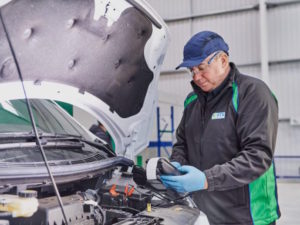Fleet managers should use the post-pandemic period to ensure vehicles remain fit for purpose while also updating strategies to ensure they can cope with unexpected events.

ATS Euromaster said that Covid-19 had accelerated how fleet operators and drivers view mobility and created both new challenges and opportunities that businesses should act on.
Jess Jones, director national fleets at ATS Euromaster, said: “Fleets have undergone major changes in working practices. The rise of the grey fleet, work-from-home, hybrid offices and online meetings have transformed the way business is conducted and created new challenges for the effective management of fleets. One option is to look for ways to turn manual tasks into automated workflows that can resolve issues rather than merely report them.
“For example, our vehicle digital health checks provide a wealth of data. When used correctly these can enable fleet managers to create rules so that maintenance and repair jobs can be triggered when certain data conditions are identified. For instance, a dashboard light highlighting a problem can be interpreted to trigger appropriate repair action.”
Jones also highlighted that partnerships between suppliers and fleet operators had become more important than ever to ensure effective, post-pandemic business recovery plans.
She added: “Customer and driver safety is paramount and needs support from all departments and partners. Throughout the pandemic, we remained in close contact with our fleet customers, to ensure we understood their issues and needs so we could tailor our services to effectively support them.
“After a period when many vehicles remained idle on the driveway, it is vital to get them checked and roadworthy; and our hands-on support has helped fleets plan servicing, as some SMR operators are seeing long booking queues.”
Looking ahead, ATS Euromaster has also said future fleet plans should focus on changed driver needs and journey requirements without compromising duty of care commitments.
Jones finished: “When a business and its employees are tested by a worldwide crisis, they collectively learn their strengths and the areas in which they can improve. We must all be sure to apply those lessons and come out of the other side of this pandemic stronger. The automotive sector continues to constantly shift; whether it’s EV, automation, technological advances or mobility behaviours, this pandemic has shown that standing still is no longer a viable option because the next business crisis may just be around the corner.”

